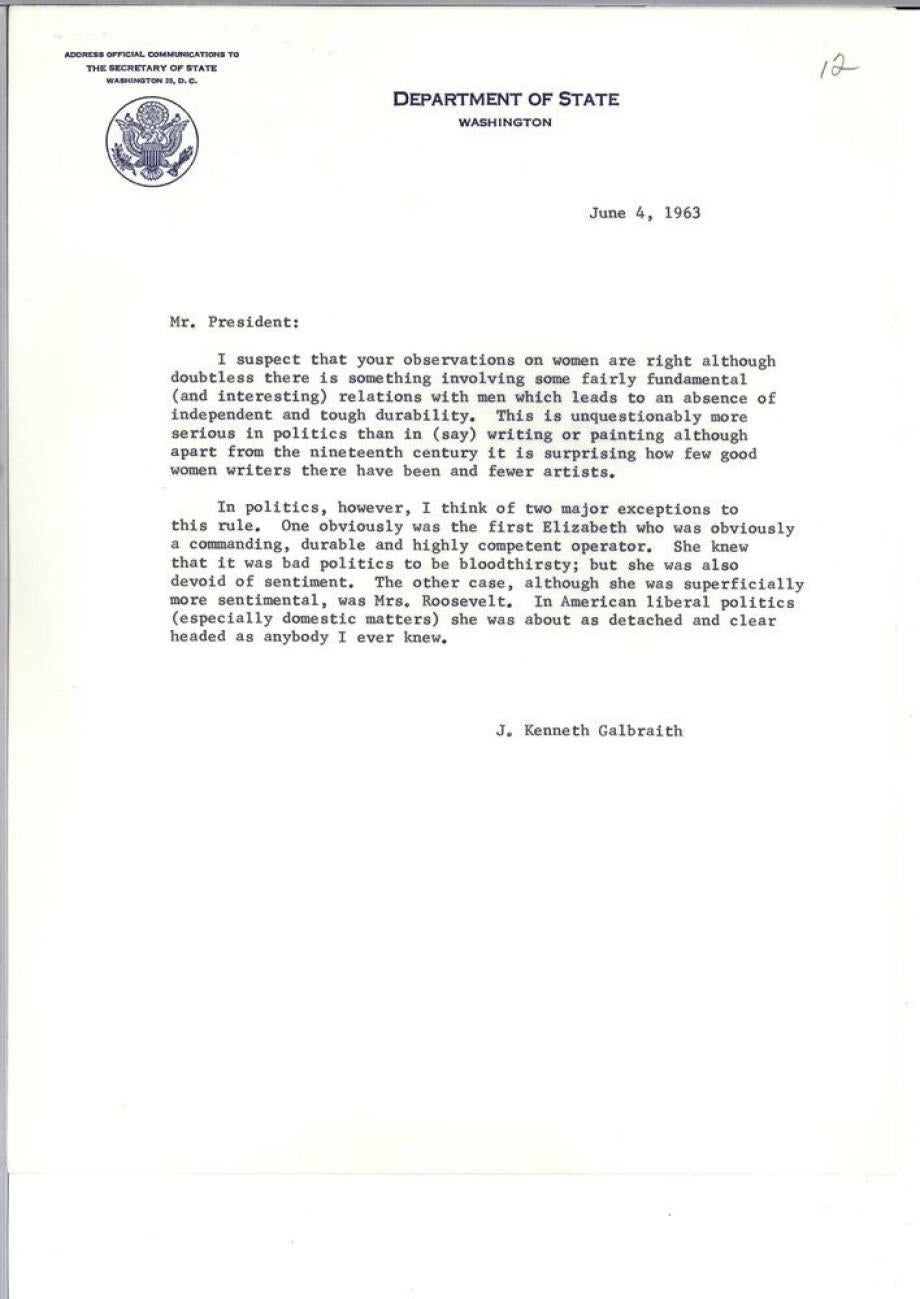The Vault is Slate’s new history blog. Like us on Facebook, follow us on Twitter @slatevault, and find us on Tumblr. Find out more about what this space is all about here.
Six days before President John F. Kennedy signed the Equal Pay Act into law, he shared his “observations on women” in conversation with John Galbraith, the economist and then–U.S. ambassador to India. This response from Galbraith, dated June 4, 1963, offers a glimpse into a private exchange that the two men had about women in the public sphere.
In it, the Kennedy confidante acknowledged “some fairly fundamental (and interesting) relations with men which leads to an absence of independent and tough durability” in women. He readily assigns negative attributes to women as a result of this social dynamic but fails to cast a critical eye on men.
Galbraith goes on to lament the lack of women in writing and the arts—missing the notable recent achievements of Hannah Arendt, who had published The Human Condition in 1958, and Harper Lee, who won the 1961 Pulitzer Prize for To Kill a Mockingbird. However, the ambassador does defend the political acumen of Queen Elizabeth I and Eleanor Roosevelt, who he called “about as detached and clear-headed as anybody I ever knew.”
Kennedy appointed no women to his Cabinet and only 10 to policymaking executive and judicial posts—five fewer than President Harry S. Truman. His support of the Equal Pay Act may have been a practical measure: Women made up half of the electorate and had been enthusiastic volunteers during his first campaign.
The inadvertent instigator of the conversation may have been the ambassador’s own wife. Catherine “Kitty” Galbraith’s article, “Mother Doesn’t Do Much,” had just appeared in the previous month’s issue of the Atlantic Monthly.
The article was prompted by their fourth-grade son. He had written an essay about his parents, primarily focusing on his father and concluding: “Mother doesn’t do much.” Kitty, who held a graduate degree from Radcliffe and had studied languages at the Sorbonne and the University of Munich, begged to differ. In the piece, Kitty reflected on her duties in India, including learning Hindi and the importance of “dining room diplomacy.”

Courtesy the John F. Kennedy Presidential Library and Museum.